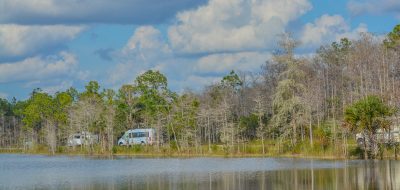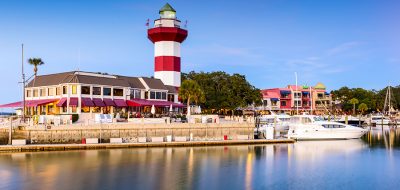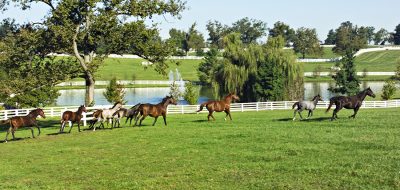
By Bob Difley
Food supplies usually don’t limit the number of consecutive days you can boondock, like a full holding tank or an empty water tank does. Canned, dry, and packaged foods will keep for months. Frozen foods a bit less. The food items that will put limits on your camping trip are those you forgot, ran out of, or only eat fresh–and their importance depends on your culinary lifestyle.
There are those among you that place a high priority on fresh local food, and, like my wife, will drive 50 miles to obtain fresh vegetables and salad greens. (She actually has driven from the Mogollon Rim in Arizona down to the Phoenix area because the quality and variety of vegetables and greens available locally was not to her standards. Forget what she spent on gas for the trip.)
So in an attempt to limit the number of such trips, here are some tips for getting the most distance and time from your fresh food purchases.
- Milk will keep for a week if kept refrigerated. Then you can replace it with powdered or canned milk to stretch a few more days.
- Salad greens will last about five days. But those sold in sealed plastic bags will keep for about a week if unopened, then another four to five days once opened.
- Use other tossed salad ingredients that have staying power, such as radishes, onions, jicama, cucumbers, and red and yellow bell peppers.
- Fish frozen at sea when fresh caught is not only the tastiest compared to fresh, but will keep in the freezer for weeks.
- Shop the local farmers’ markets, farm stands, and U-pick farms and orchards for fresh-out-of-the-field veggies, rather than supermarket veggies that have already aged by the time they hit the shelves.
- Keep veggies in the refrigerator to extend their shelf life.
- Root vegetables keep well if kept cool, like carrots, potatoes, turnips, and parsnips. Collard greens keep well if refrigerated. Winter squash keeps very well in a cool, dry place–not in frig. Think root cellars–dark, cool, good air circulation–before refrigeration was invented.
- Ask the fruit orchard farmer for a cross-section of ripeness, with some ready to eat now, to others that will take the longest to ripen–and how to tell when the fruit is ready to eat. Apples and oranges will last a long time.
- Ask the farmer if he has any older produce that he is about to throw away and will sell to you at a discount. Use this to make sauces, soups, and stews in quantity that you can freeze to eat later.
- Fresh herbs–not dried–like marjoram, sage and rosemary, will keep in their original boxes if you place a piece of paper towel in with them.
Plan your meals ahead of your trip, and select the ingredients for those recipes. Try not to over buy. Twenty percent of land fills is discarded food, not only a waste of food but a waste of money as well.
When you have a chance, check out my eBooks for more tips on boondocking and saving money on the road: Boondocking: Finding the Perfect Campsite on America’s Public Lands and 111Ways to Get the Biggest Bang Out of Your RV Lifestyle Buck.





Pingback: עיצוב גינות
Don M
Has anyone had any sort of experience with the vegetable storage bags one finds in the grocery stores today?
We use boxed ultra pasteurized milk either the refrigerated type or non-refrigerated.
When we’re not traveling we stay in a remote cabin (with many of the same issues as RVing). We use composting toilets at the cabin and they work well. But antibiotics are a problem. If one has to take antibiotics you shouldn’t use a composting toilet as the excess antibiotics will kill the composting bugs. This might be pretty uncomfortable in an RV with only one toilet opportunity. I suppose with a little more planning it’s possible.
I’m going to check into those earth boxes, that sounds like a good idea for us. And the egg storage idea…that’s great! thanks.
Ed
I think it’s a good idea and when I go on the road I will consider it. Cutting down other peoples ideas is foolish and shows how silly we can all be. Very good article.
Tara from So. Cal.
We buy Kirkland Organic Vanilla Soymilk from Costco by the case (12 one qrt cartons). They don’t have to be refrigerated until opened and have an expiration date of about a year. They stay fresh in the frig from 7-10 days after opening. If you like soy milk, this is the was to go……
Jayne
Ken, thanks for the reminder of sprouting! We love a variety…mung bean, alfalfa, radish. River person…seriously calling names and commenting horribly about someone’s ideas? Not okay and consider counseling to help?
Fred Brandeberry, SR
Hi Guys and Gals:
We use cheap, larger Tupperware type containers to keep our apples and potatoes fresh.
The absence of air lengthens their life.
Happy Camping,
Fred b.
Bob Rice
Hi,heres another hint,eggs will keep for at least 3 weeks,un-refrigerated,IF,you coat the eggs with crisco.just put a little crisco in your hand,and roll the eggs thru.
Denise from ARk
Hmmm I’m intrigued by the idea of composting toilets in RVs. I don’t know anything about them, but I’d like to hear out people who think it’s a great idea and those who think it would have too many downsides.
Kenny, I had completely forgotten about micro greens, so thanks for that mention. I can’t STAND not to garden, and even though we don’t boondock, I do carry my pots of fresh herbs around and just set them in and out of the camper. I love seasoning with fresh herbs (try some pho’ next time you eat in a vietnamese restaurant).
If you stay put anywhere for the season, there are always Earth Boxes (homemade or commercially bought) or even growing in bales of straw that are self-composting and could (possibly) be simply abandoned in some settings, because they would decompose over the winter.
We gardened in plastic horse tubs last year – set them out right on the pavement. I couldn’t even count how many people we fed tomatoes to.
Love the idea of making use of a toy hauler, too.
Jerry
Great article Bob with my wife being asian we eat a lot of fresh veg and fruit.
A great website localharvest.org shows a map of the US with local farms and farmers markets
karen
Such a great idea, Ken!! We love to hit as many farmers markets as possible, but haven’t grown much in the RV, yet. More people need to become aware of the health benefits of sprouts & growing organic foods. It’s sad to see so many overweight & bulging bellies on people of ALL ages. Exercise & diet are NOT dirty words nor are they from LOONIES. Instead, it’s a CHOICE each of us makes to stay healthy & happy!!!
Vickie
Thanks Bob for the great article. I agree with Ken about growing your own salad. It’s always good to know what is in the food you eat. We’re about to start RVing fulltime as soon as the house sells and one of the things I’m looking forward to is finding fresh produce stands.
Sucie
If you were to stop and really think about it. the slide out atrium would be great.
If you are boondocking for a while it would provide extra light in your rig and I love plants and it would give me a chance to keep one or two of my plants when we hit the road. I have already decided to do the topsy turvy for my veggies while full-timing.
NV Ron
I think that Ken’s idea of sprouting and growing micro-greens in an RV is a good one. I don’t think that any rational person thinks that his post is really “telling us what all RVrs should do”! I read it as an idea, not a command.
River
I remember now. Kenny L is the guy who had the fruitcake idea a couple days ago that we should push for having composting toilets in RVs.
Unbelievable!
River
Good grief…another loon (Kenny L.) telling us what “all RVrs should do”! I’m about sick up to here having idiots like that tell us what we “should” do. It’s amazing how goofballs like this are able to believe they can just up and decide that whatever little discovery of theirs is just too important not to impose on the rest of us who somehow just haven’t thought of it in our lifetime. Kenny, give it a R-E-S-T! GAWD!!
Aside from my little rant there, let me say that Bob Dilfey has a pretty decent article here, should any of us choose to adopt all or any part of it. There is some good information that we may consider, depending on our own lifestyle choices. Thanks, Bob.
Ken Locarnini
I would like to add that all RV’ers should take up the practice of sprouting and growing micro-greens in their rig. In most rigs of size, one can be self sufficient growing a salad a day per person. If you have a toy hauler, you can really grow some produce with hydroponics and grow racks with the added bonus of wheeling it out the back to capture natural sunlight. Skip the ATV’s!
Though not cheap, look into efficient LED grow lights to supplement natural light from the windows, for those who boondock. One problem is that many RV windows have solar film on them, so they don’t let in much light. I have come across pop out atrium windows that replace the normal RV windows which would be great for growing projects.
Ultimately, I’m waiting, or will invent myself, the pop out, or slideout atrium, whereby one can have a large hydroponic garden center, on the road. There is no substitute for fresh food on the road if you want to be truly a/Live. Being able to grow food in quantity on the road, should be the next evolution in RV design…